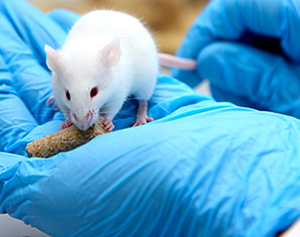Just 66 inspections were carried out at organisations who conducted experiments on 818,000 animals over a six-year period.
Given that 40 companies and institutions registered for animal experimentation between 2005 and 2010, the figures mean on average, each premises was inspected just once every four years.
Even accounting for the fact that 42 out of the 66 inspections in this period were carried out in 2009 and 2010, this still equates to an inspection rate for each institution of just once every two years.
The figures, released by the Department of Agriculture, show it carried out just two inspections in 2005 and 2006 — a period where animal experimentation almost doubled from 37,940 in 2005 to 73,794 in 2006. No inspections were carried out in 2005.
A total of 13 inspections were carried out in 2007. This figure dropped back to just nine in 2008 despite the fact the number of animals being used for research rose from 64,378 to 112,835.
Anti-vivisection groups have pointed out that, even accounting for the low inspection rate, inspectors merely look at the conditions in which the animals are housed and do not check to ensure that the institutions are keeping within the remits of the licence granted.
Licences to permit animal experimentation are granted by the Department of Health.
The responsibility for inspection falls to the Department of Agriculture.
The checks are managed through the Department of Agriculture’s network of district veterinary offices, where there are seven inspectors. Among their duties is to carry out inspections "as the need arises".
The number of active registered premises for animal experimentation here is 45 across 18 organisations. The number of licences issued in 2011 was 132. The health department declined to issue the names of the institutions and companies currently licensed.
It also declined to confirm if any institution or company had been declined a licence since 2005, saying a premises "is only registered if it meets the requirements of the legislation" and that where there are issues regarding the registration of a premises, the department will liaise with them to order that they address any such issues.
Policy consultant with the Irish Anti-Vivisection Society, Dr Dan Lyons, said the low level of inspections showed a "cavalier" attitude to the welfare of animals
"When society reluctantly allows cruelty to animals under certain conditions, the very least any decent person would expect is that such practices are carefully monitored.
"The fact the animals are the weakest and most vulnerable individuals in our society means that they are most in need of protection.
"We are seeing some encouraging signs now that the Government recognises the importance of this issue and we hope they learn lessons when implementing the new EU Directive," he said.
- Conall Ó Fátharta


